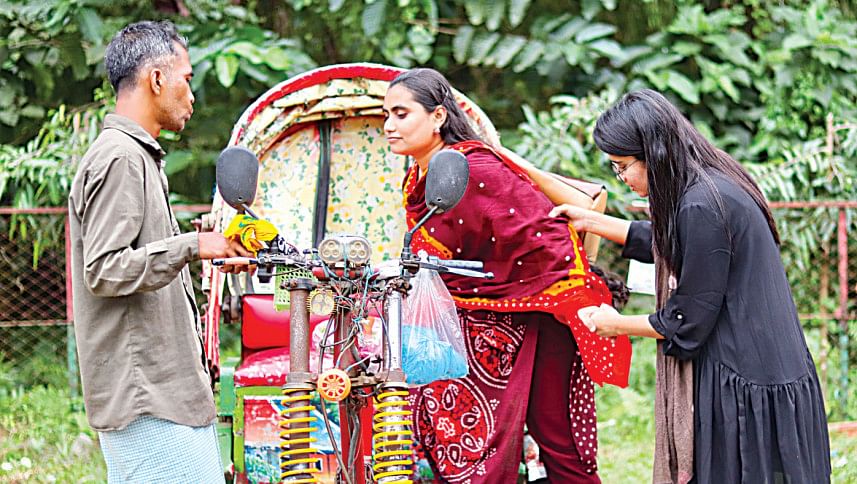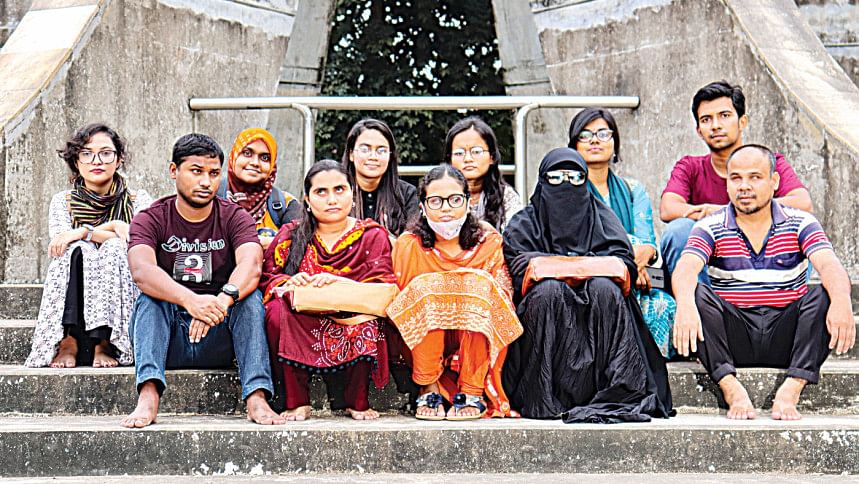Third Eye: A guiding light for visually impaired students

"I thought the university helps them with exams somehow. But during my first-year final exams in 2018, I saw some visually impaired students searching for steno-graphers while everyone else focused on their exams," says Masrur
Masrur Ishraq founded Third Eye in 2019 to help the visually impaired students at his educational institution, University of Chittagong (CU). For his efforts, he won the Joy Bangla Youth Award for social inclusion in 2021.
So far, Third Eye has helped over 400 visually impaired students with audiobooks, recording lectures, and stenography during exams.
"I knew about the visually impaired students when I enrolled in CU," says Masrur.
"I thought the university helps them with exams somehow. But during my first-year final exams in 2018, I saw some visually impaired students searching for stenographers while everyone else focused on their exams."

When Masrur approached the visually impaired students after his exams were over, he was quite shocked to know that they had to find their own stenographers, as well as helpers for recording study materials.
As a result, he wanted to create a team that would help the visually impaired students with audiobooks and exam hall stenography.
With this aim in mind, Masrur posted his idea in several internal online groups of CU via Facebook, Messenger, and WhatsApp. At first, many responded to his call. However, only eight people appeared in the first team meeting of Third Eye in January 2019.
Today, the platform has expanded outside the campus of CU, reaching five districts of the country.
They have over 550 active volunteers in Chattogram, Dhaka, Jashore, Feni, and Rajshahi. A 31-member executive committee is selected every six months, based on work performance to lead the organisation.
They follow rules like stenographers cannot be from the same department as the visually impaired students, and one stenographer cannot give multiple exams for the same visually impaired student.
Third Eye also involves visually impaired individuals in their work.
"As a volunteer and visually impaired student, Third Eye has been helping me with my studies since their inception," says Faisal Mohammad Ibrahim, former head of marketing and promotion of the organisation. "It is a harmonious platform, where we can work together with our sighted friends."
Currently, Third Eye offers debate, computer and pronunciation training for the visually impaired, alongside other vocational and personal skill development projects.
During the lockdowns in 2020, the platform utilised online content writing, workshops, and YouTube videos to raise awareness.
"In 2020, I became a certified trainer with Competency-Based Training and Assessment (CBT&A) from Bangladesh Technical Education Board, in hopes to establish a vocational training centre, which could help bear the management costs of Third Eye," reveals Masrur.
"CBT&A also included lessons on how to teach individuals with special needs, which I integrated into plans for Third Eye."
Masur hopes for the day when no visually impaired person will feel like an outcast in society.
The author is a freelance journalist. Email: [email protected].

 For all latest news, follow The Daily Star's Google News channel.
For all latest news, follow The Daily Star's Google News channel. 



Comments